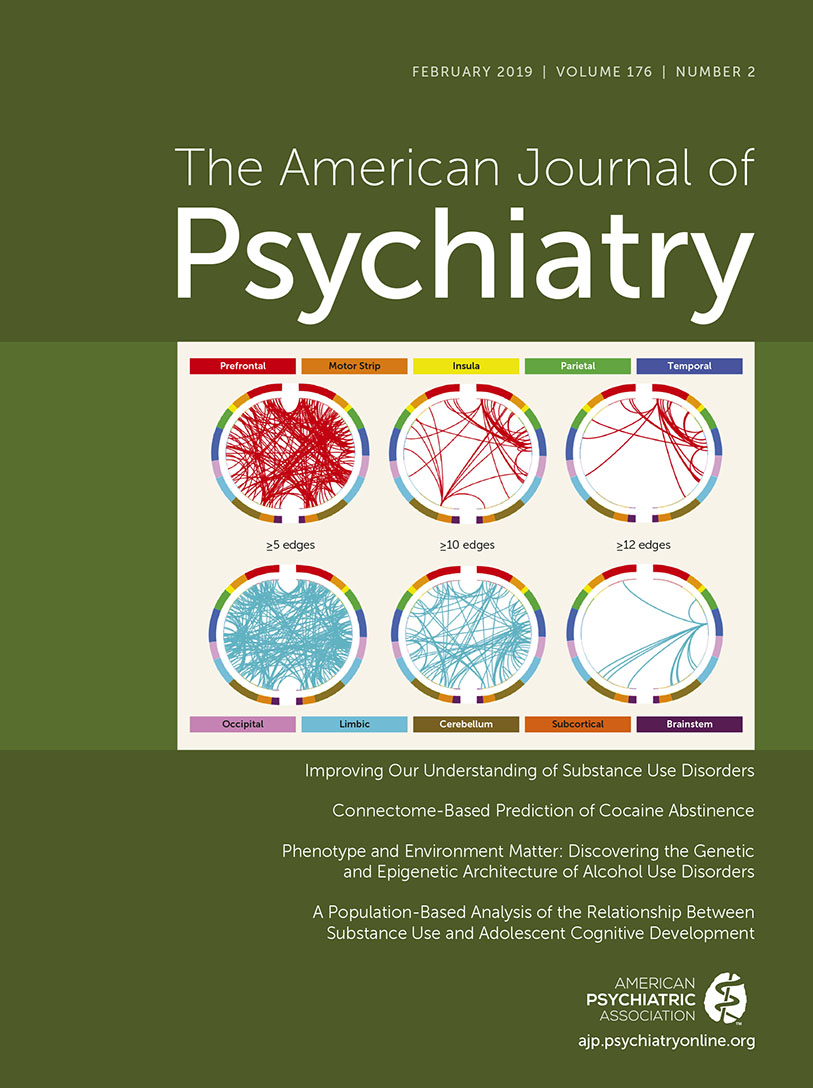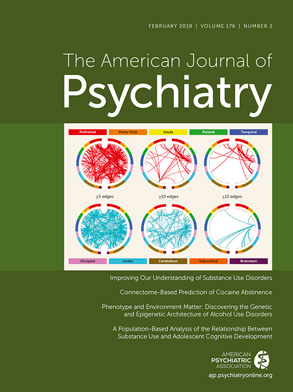T
o the E
ditor: We read with interest the study by Simpson et al. (
1), published in the December 2018 issue of the
Journal, comparing prazosin and placebo in the treatment of alcohol use disorder. The article, however, has several flaws in methodology and reporting that are important to point out: the statistical analyses reported in the Results section are different from those specified in the Method section; the presented results do not conform to accepted methodological standards; and the trial is misrepresented as positive despite all primary and secondary outcomes showing no difference between groups.
The Method section specifies that the primary outcomes of “number of heavy drinking days per week,” “number of drinking days per week,” and “number of drinks per week” were to be assessed by “group differences in outcome changes during treatment.” However, the mean differences are not calculated from the start of treatment to week 12; instead, change is assessed between weeks 3 and 12. This alternative baseline was not specified in the Method section or in the description of the trial on
ClinicalTrials.gov (identifier: NCT00762710), raising the possibility that the authors adjusted how the outcome would be assessed after the study was completed.
An exploratory search for condition-by-week interaction effects was not a primary or secondary outcome yet was reported under the “Primary Outcomes” subheading of the Results section. Only prespecified primary outcomes assessed with the statistical analyses defined a priori should be presented as the primary outcomes of the study. Corrections for multiple comparisons should have been performed for primary outcomes and exploratory analyses. Moreover, all subjects randomized should be analyzed following the principle of intention-to-treat. Instead, only 80 subjects among 92 randomized were included in the final analysis. It is interesting to note that the reported condition-by-week interaction effects were not significant using the intention-to-treat or random-slope models in the sensitivity analysis.
There is also no discussion in the article of a power analysis or of a prespecified enrollment target; however, on
ClinicalTrials.gov, the estimated enrollment was 150. Presumably, the a priori power calculations were based on this enrollment.
The abstract concludes that prazosin “holds promise” for alcohol use disorder without informing the reader that this study did not find a difference between prazosin and placebo on any primary outcome. None of the three primary outcomes were presented in the abstract. Instead, the exploratory analysis that found condition-by-week interaction effects was the only reported efficacy result. This raises concerns as many clinicians rely on the abstract for making clinical decisions.
This randomized double-blind trial did not show a statistically significant difference between placebo and prazosin on any of the three primary alcohol use outcomes and should be considered a negative study. This finding should have been clearly presented.

